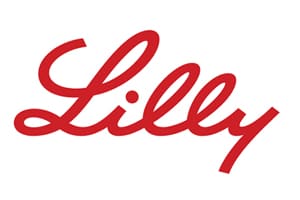
Eli Lilly is to withdraw its soft tissue sarcoma treatment Lartruvo from the market after it failed a post-marketing efficacy study.
The company announced yesterday that Lartruvo (olaratumab) will be removed from the market after it failed to demonstrate improved patient survival, two and a half years after it gained accelerated approval.
The development is significant as it is believed to be the first time in the new era of accelerated and conditional marketing approvals that a product has been withdrawn from the market in the US and Europe (other incidences include the FDA withdrawing authorisation for Avastin in breast cancer in 2011).
Accelerated approvals based on interim data and/or surrogate endpoints is increasingly common occurrence, especially in oncology.
Companies who gain approval via accelerated and conditional marketing approval routes are obliged to provide data confirm efficacy.
This isn’t the first time a drug has failed in confirmatory trials – but the FDA and EMA have not sought to limit use of a drug – until now.
The regulators had not demanded withdrawal of the drug, but Lilly has now taken the decision itself, though it will establish an access programme for patients currently receiving the drug who may wish to continue use.
The decision was taken after Lilly’s phase 3 ANNOUNCE clinical trial, where Lartruvo failed to hit the two primary endpoints of overall survival (OS) in the intent-to-treat (ITT) population and OS in the leiomyosarcoma (LMS) sub-population. The trial studied Lartruvo combined with standard treatment doxorubicin, compared to doxorubicin alone.
Lilly says it will present data from the trial at the American Society of Clinical Oncology (ASCO) meeting in June.
Lartruvo was approved in the US and Europe in 2016 on the basis of a small mid-stage clinical trial under an accelerated approval programme, with the data suggesting a significant improvement in overall survival.
The drug had been a significant part of Lilly’s plans for its oncology franchise, and Evaluate Pharma had forecast it reaching sales of $603m in 2024.
The company took the decision after discussing the results with the FDA and EMA, and elected to withdraw the drug from global markets entirely.
“Lilly wants to ensure that patients and physicians feel supported during this important time,” stated Anne White, president, Lilly Oncology. “Advanced soft tissue sarcoma is a rare and difficult-to-treat cancer. Establishing this programme will give patients who are currently taking Lartruvo the opportunity to continue their treatment programme uninterrupted.”
A number of studies have shown that regulators have been reluctant to act when companies either fail to produce follow-up studies, or produce results which show insufficient benefit.
Research by Harvard Medical School and the London School of Economics published in 2017 found the FDA had granted accelerated approval to 22 drugs for 24 indications, 19 in cancer. After three years or more on the market, only half had completed confirmatory trials. For those that had, eight had not confirmed clinical benefit five years or more after the agency granted accelerated approval.
In recent times, several immunotherapy treatments have failed confirmatory studies. These include Roche’s Tecentriq and others in urothelial carcinoma, and Merck & Co’s Keytruda in gastric cancer, however the FDA and EMA have not insisted on any withdrawals among these indications.
The Latruvo case looks unlikely to bring about a wholesale shift in regulators’ policies, but a measure of greater vigilance and response in these cases does look likely.




